Get Relief from Slipped Disc Pain
Personalised care and treatment for slipped disc by Dr Fong Poh Ling at Alpha Joints & Orthopaedics
Meet Dr Fong Poh Ling, Orthopaedic Spine Specialist
Dr Fong Poh Ling is a Senior Consultant Orthopaedic Surgeon at Alpha Joints and Orthopaedics, located in Novena Medical Center. Dr Fong offers a wide range of services including treatment for pregnancy-related musculoskeletal discomforts, spinal inflammatory disorders, spinal degeneration, prolapsed intervertebral discs, neck pain and stiffness, and osteoporosis, providing holistic care for various spine and musculoskeletal issues.
She completed her training and was conferred Fellow of the Royal College of Surgeons of Edinburgh in Orthopedic Surgery in 2013. She went on to further her training in spine surgery in Singapore General Hospital from 2014. In 2017 she was awarded the MOH HMDP scholarship and was able to gain further experience in the field of sagittal balance and degenerative scoliosis in Bordeaux, France.
Her interest is in the treatment of ageing and degenerative spine with special interest in sagittal balance and deformity. She also works closely with hospitals in China, especially in Nanjing (Nanjing Drum Tower Hospital) and Qingdao (Qingdao Municipal Hospital) in deformity work and education. As she is effectively bilingual, she has given talks on spine issues in Mandarin and also published an article in Lianhe Zaobao on neck pain.
Dr Fong is a dedicated educator, serving as a lecturer and mentor at NUS, LKC, and Duke-NUS Medical School, where she is also an Adjunct Assistant Professor. Previously, she was the Education Director of the Singhealth Duke-NUS Spine Centre. Additionally, she is a member of the Quality Improvement Committee, ensuring good healthcare practices and innovation.
In the Singapore Spine Community, she is the first female orthopaedic spine surgeon and is part of the diversity committee of the Singapore Spine Society. Her role is to engage female residents and to encourage more female presence together with the AOSpine global platform.
Outside of her professional work, Dr Fong is involved with the Tzu Chi Medical Association (TIMA) and has participated in providing surgical care in underprivileged countries. She has also taken part in relief work during acute disasters.
What is a slipped disc and what causes it?
Between each bone in your spine are soft, cushion-like discs that act as shock absorbers and help your spine move smoothly.
A slipped disc happens when the soft inner part of a disc bulges out through a tear in its outer layer. This can press on nearby nerves and cause pain, numbness, or weakness in your back or legs.
Also called a herniated, ruptured, or prolapsed disc, this condition often leads to sudden, sharp lower back pain and can affect how you move or feel.
A slipped disc is mainly caused by gradual wear and tear as the discs lose flexibility with age, making them more prone to injury. Other contributing factors include:
- Strain from lifting heavy objects incorrectly (e.g. using the back instead of the legs).
- Movements or twists that put excess pressure on the spine.
- Traumatic incidents, such as falls or blows to the back (though rare).

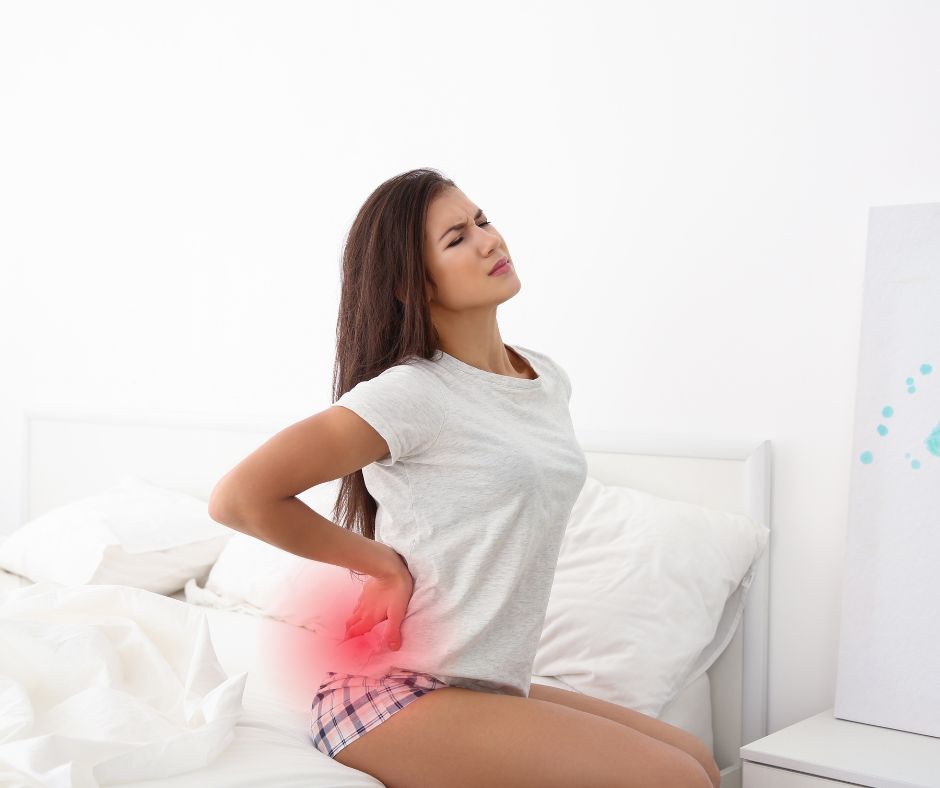
Common Symptoms
- Numbness, tingling, or sharp pain starting from the lower back and radiating down the buttocks, legs, or feet (sciatica).
- Pain in the buttocks, thighs, calves, or feet, which may worsen with coughing, sneezing, or certain movements.
- Muscle weakness that can cause stumbling or difficulty lifting and holding objects.
- Numbness in areas served by affected nerves, including the genitals and groin area.
- Difficulty controlling bowel movements or urination.
Risk Factors
The most common age to develop a slipped disc is between 20 and 50 years. Factors that may increase the risk include:
- Jobs involving a lot of lifting
- Jobs involving a lot of sitting (e.g., driving)
- Weight-bearing sports (e.g., weightlifting)
- Smoking
- Obesity
- Increasing age


When to See a doctor
See a doctor early if your pain doesn’t improve with rest, over-the-counter medication, or heat/cold packs or if it worsens, especially with numbness, tingling, or weakness in your limbs.
In rare cases, pressure on nerves can affect bladder or bowel control or cause numbness in the inner thighs or groin area. This is a medical emergency and needs immediate attention.
Delaying treatment can lead to long-term nerve damage, patients who wait over six months often respond less well to treatment than those who seek help earlier.
How is it Diagnosed?
Most slipped discs are diagnosed based on medical history and physical exams. Imaging like MRI (gold standard), CT scans, X-rays, or nerve tests (electromyography and nerve conduction studies) may be done if symptoms persist or worsen.
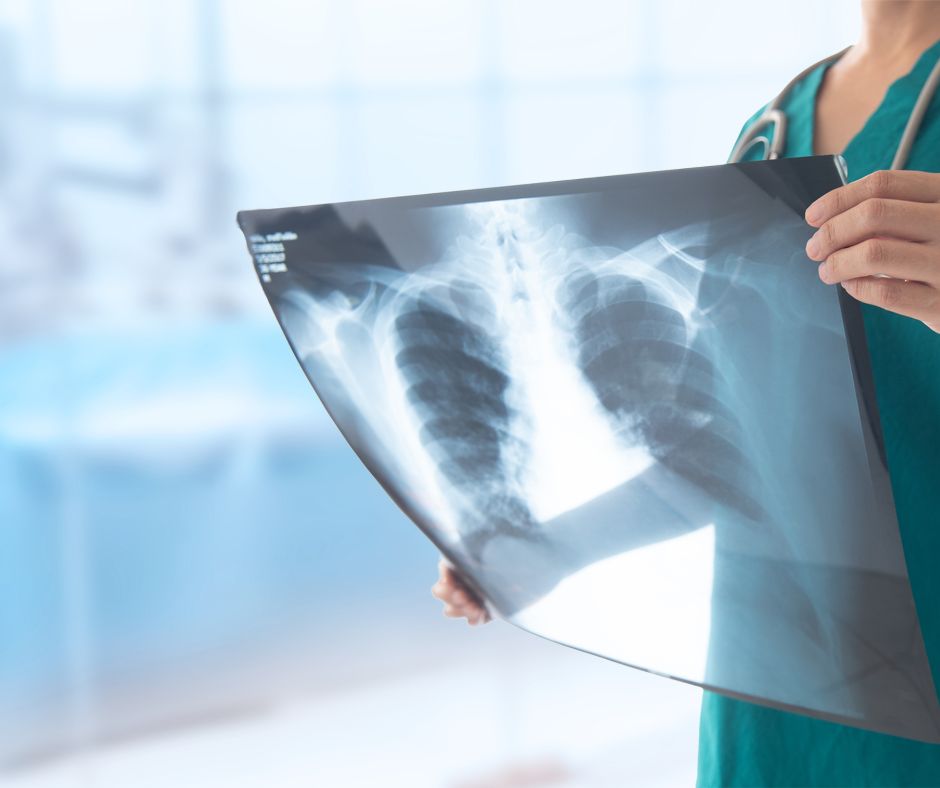
Treatment Options
Non-Surgical Treatment Options
- Rest and Activity Modification: Stay active as soon as possible with light movement to aid recovery.
- Pain Relief: Use nonsteroidal anti-inflammatory drugs (NSAIDs) such as ibuprofen, naproxen and aspirin, cold/hot packs, or muscle relaxants to manage pain.
- Physiotherapy: Involves exercises, stretching, and methods like traction, ultrasound, and electrical therapy to strengthen your back and prevent future injury.
- Injections: Steroid injections or nerve ablation may help with persistent symptoms.
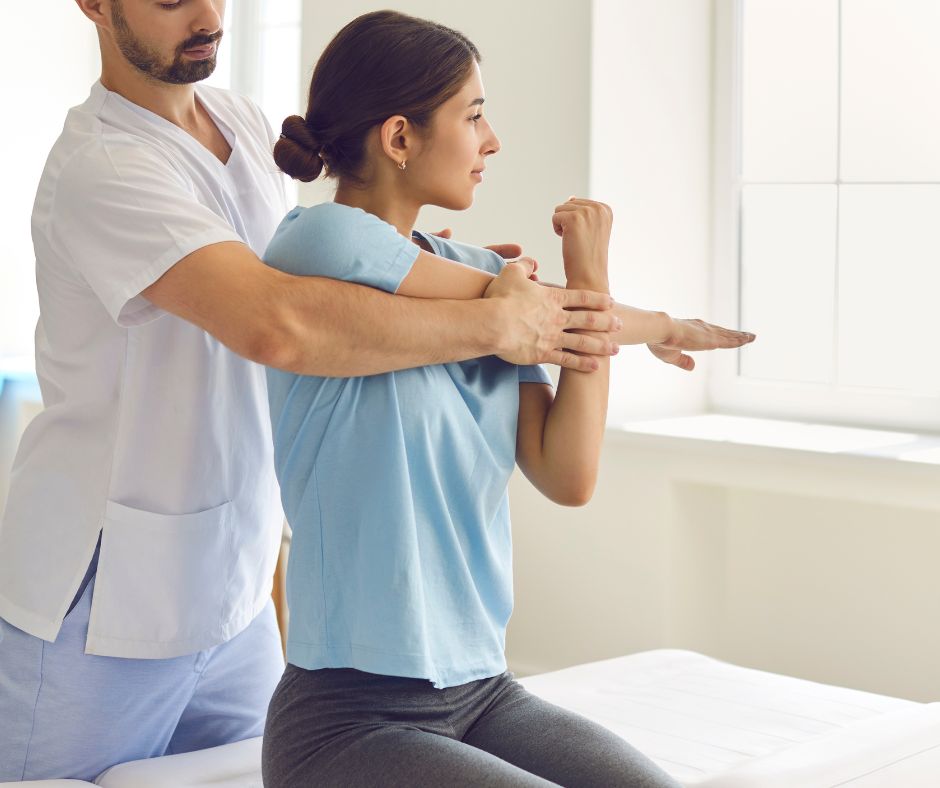
Surgical Treatment Options
Surgery may be needed if conservative treatments fail and there is pressure on the spinal cord causing serious symptoms (e.g. incontinence, severe weakness).
Common surgical procedures include:
- Discectomy: Removes the herniated part of the disc to relieve pressure on nerves.
- Laminectomy: Removes part of the bone or tissue pressing on the spinal cord or nerves.
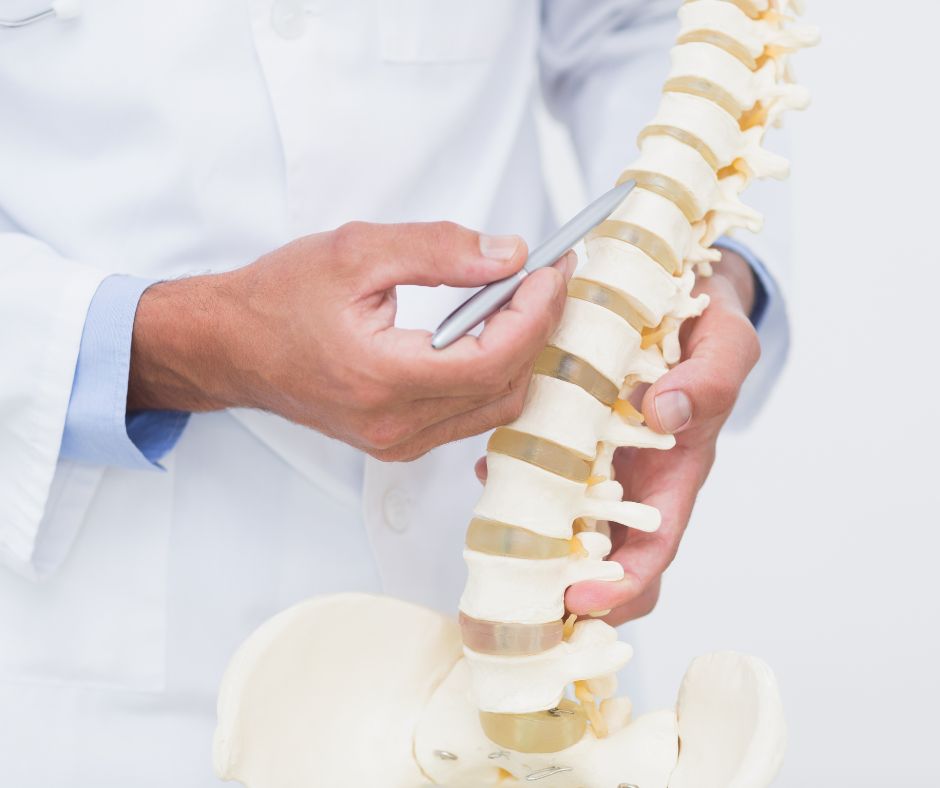
Why Choose Alpha Joints & Orthopaedics?
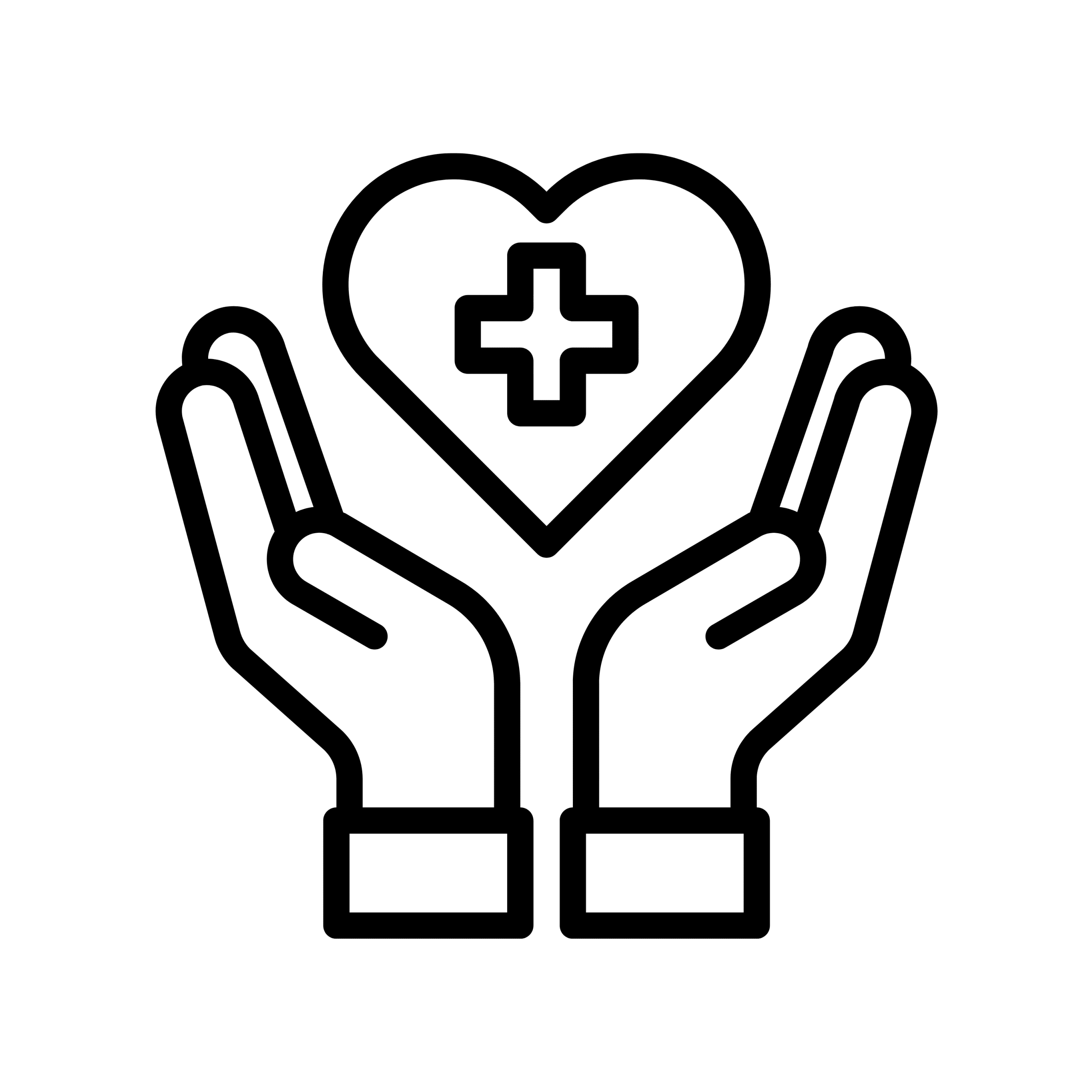
Personalised treatment for patients
of all ages

Commitment to exceed
patient expectation

Conveniently located in Farrer Park, Gleneagles, Novena and Orchard
Frequently Asked Questions
- Keep a healthy weight: Reduces strain on your lower back and protects the spinal discs from excess pressure.
- Avoid smoking: Smoking may limit blood flow to spinal discs, increasing the risk of damage.
- Exercise regularly: Strengthen and stretch your core and back muscles Pilates-style exercises are especially helpful.
- Practice good posture: Sit and stand with proper alignment to reduce stress on your spine.
- Lift correctly: Use safe lifting techniques, bend your knees and don’t hesitate to ask for help or use lifting aids for heavy items.
A slipped or herniated disc usually heals within 4 to 12 weeks after surgery or treatment, though recovery may take longer in some cases. Most people feel better within weeks and can return to normal activities in a few months.
While the probability of relapse after surgery is low, there is no guarantee your slipped disc will not recur. Managing symptoms, preventing future herniations, and addressing any underlying factors are important for long-term spinal health.
Back muscle inflammation can last beyond three days, while spinal pain is less common and often feels sharp or shooting. Unlike muscle pain, spinal pain may radiate to the legs, glutes, or groin.
Insurance Panel



Hospitals Accredited
Mount Elizabeth
Parkway East
Parkway Shenton
Day Surgery Centre Accredited
Novena
Find the Right Care for Slipped & Herniated Discs
Let us help you regain movement and ease your pain. Book an appointment with our spine specialist today.

